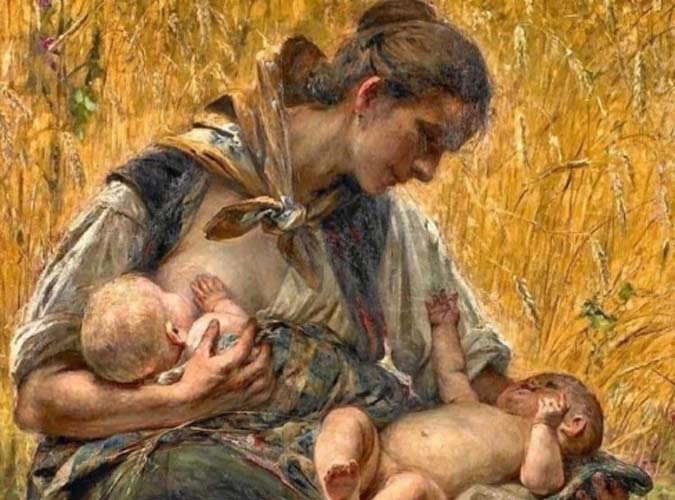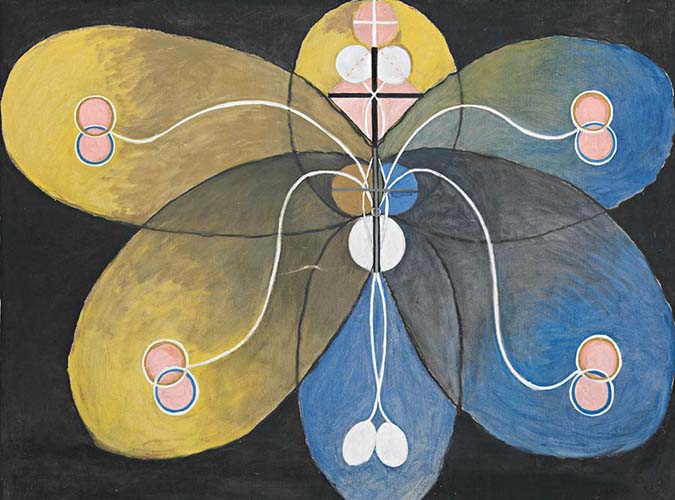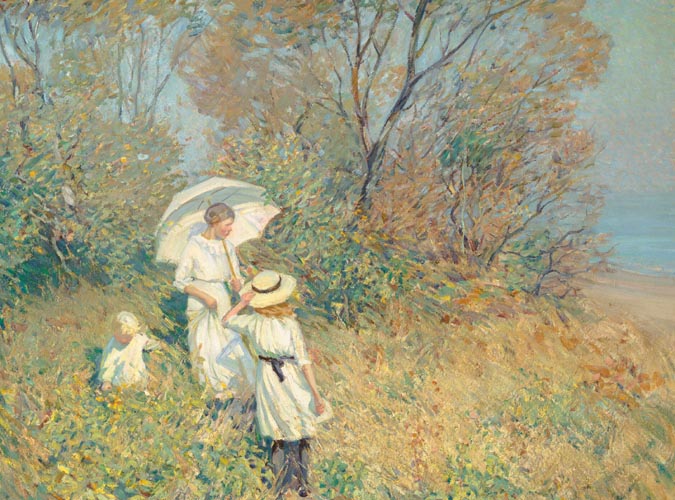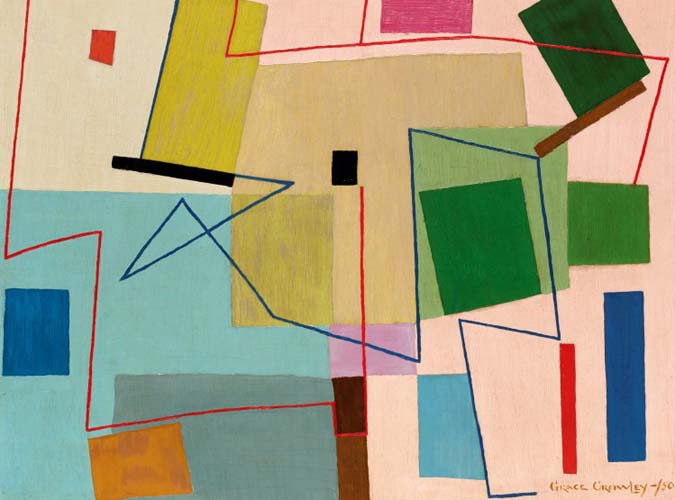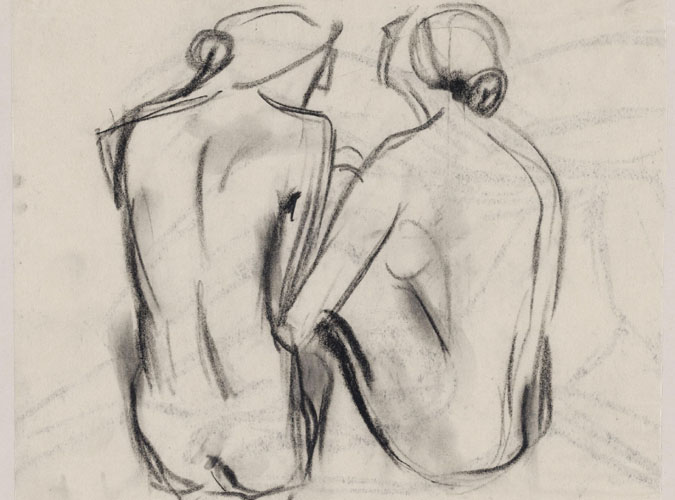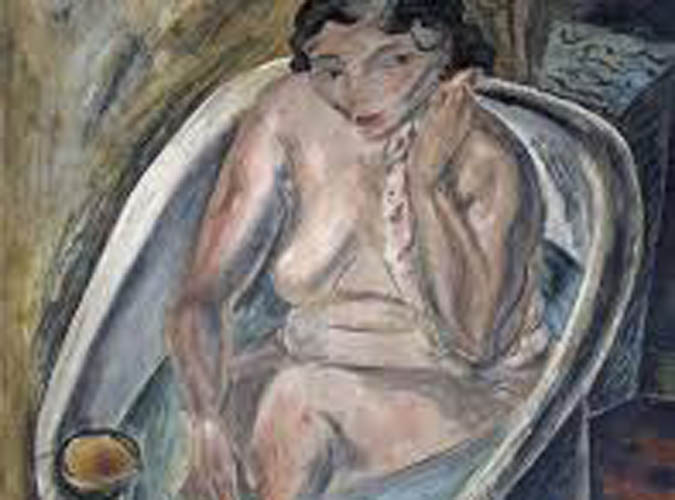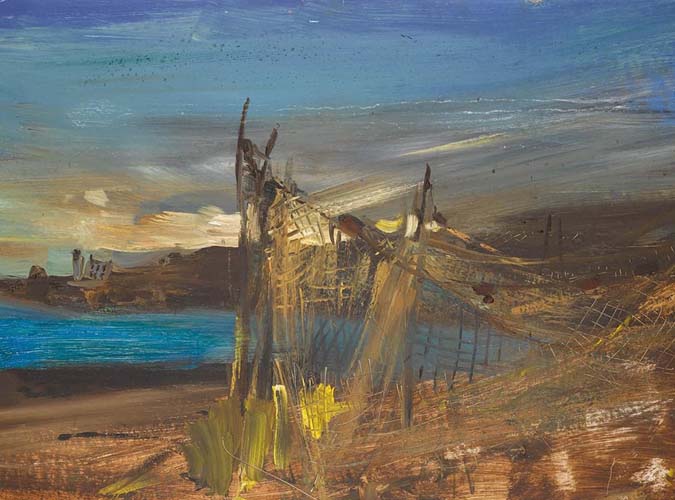Lesbian Art Through History
Whilst compiling this page I was shocked to realise how lucky I, as a girl, was able to study at university. Historically woman (and lesbians) were banned from becoming part of a guild or an art academy, and studying life drawing.
As always, noblewomen were lucky, as they could be educated to read and write, learn and practice the arts, and play musical instruments. For those less fortunate ie most women, convents were the only places where women could learn to get an education and explore their creativity. Obviously, a nuns life would come with sacrifices but perhaps some perks for some. Some lucky wives and daughters could help in
...
... their husbands' and fathers' workshops or take up home crafts such as needle crafts (embroideries), weaving and pottery.
Women & Lesbian Artists During The 18th Century
Though it was the age of Enlightenment and the Age of Reason, most women (and lesbians) were still largely banned from formal academic training and exhibiting their work. Women & lesbian artists relied on private salons hosted by wealthy and powerful women and personal connections and informal networks of patronage, support, and training.
Women & Lesbian Artists During The Second Half Of The 19th Century
Women & lesbian artists were still excluded from, for example: free training at state-sponsored art schools, life drawing classes, state commissions and purchases, as well as participating within official competitions. When sculptor Anne Whitney began to study art, quite incredulous, in America apparently not only could women not attend life drawing classes, but plaster casts of the human form could not be used in co-educational classrooms and visits to art galleries required that sculptures of nude men needed to have the genitalia covered before the women could enter the gallery. So some women artists studied anatomy to see a... man's willy!
So to attain art training women and lesbians turned to the studios of established artists or to private academies and "Female only Schools" with art life classes consisting of completely dressed men. For example The Society of Female Artists (now called The Society of Women Artists) was established in 1855 in London and has staged annual exhibitions since 1857, when 358 works were shown by 149 women with some women artists using a pseudonym. The new medium of photography, offered new opportunities to women as there were no traditional restrictions, and no established training. The issue of women’s exclusion from arts education was not addressed by the Royal Academy until 1860, when Laura Herford was admitted by accident to the RA Schools after submitting drawings with only her initials, L.H.. This is rather ironic as, the Royal Academy got off to a great start in 1768 as two of its founding members were women, the painters Mary Moser and Angelica Kauffman! Life drawing became available to female art students in Paris & Amsterdam in the 1870s, and to London in the 1890s (and their admission to the Royal Academy was strictly controlled to ensure that they didn't outnumber the men).
The Nazis Ban On Modern Art - "Degenerate Art"
After Hitler and the Nazi party came to power (1933), they even wanted to bring art under their control. They coined a term "Entartete Kunst" (Degenerate Art) to art they did not approve of. All modern art was considered ‘degenerate’ by the Nazis party and expressionism was particularly singled out.
In 1937, The Nazis purged German museums of modern art, removing some 15,550 - 20,000 artworks. In July of that year, a selection of these artworks (740 modern works) was put on show in Munich in a defamatory exhibition titled "Entartete Kunst", in order to “educate” the public on the “art of decay”. The Degenerate Art Exhibition included works by some of the great international names - Paul Klee, Oskar Kokoschka and Wassily Kandinsky - along with famous German artists of the time such Max Beckmann, Emil Nolde and Georg Grosz as well as Jewish artists. The exhibition was carefully staged so as to encourage the public to mock the work - pictures were hung askew and graffiti on the walls insulted the art and the artists.
Simultaneously an exhibition, Great German Art Exhibition, was held nearby of traditionally painted and sculpted work which extolled the Nazi party and Hitler’s view of the virtues of German life: "Kinder, Küche, Kirche" (roughly translated as "Family, Home and Church).
About 5,000 degenerate artworks were secretly burned in Berlin, some including The Sick Child by Edvard Munch was sold at auction in Switzerland in 1939 and others were disposed of through private dealers. From 1939 to 1945 in Germany and the occupied countries, many modern artists including those of Jewish heritage such as Gertrude Sandmann, Hannah Höch, Jeanne Mammen... were banned from exhibiting their artworks.
The Nazis Looting of Artworks
Though banning "degenerate art", Hitler systematically looted artworks from museums and private art collections throughout the occupied regions. Hitler's goal was to create the Führermuseum in Linz, Austria filled with plundered art which would become the most prestigious art museum in history. French Art Historian Rose Valland courageously began secretly and meticulously documenting as much as possible of the more than 20,000 artworks brought to the Jeu de Paume Museum, Paris which was used by The Nazis as a central storage and sorting depot pending distribution.
After WWII, the information that Rose had clandestinely gathered led to the discovery of multiple repositories of looted art in Southern Germany, most prominently at Neuschwanstein Castle in the Bavarian Alps, where more than twenty thousand works of art and cultural objects were found. Rose oversaw the return of 1,400 crates of artwork from Neuschwanstein Castle direct to the Jeu de Paume.
In 2011, a huge stash of modern art worth up to €1bn (£860m) was found in Cornelius Gurlitt's flat in Munich. Cornelius had inherited the stash from his father Hildebrand Gurlitt, a German art dealer and collector who had been an appointed dealer for the planned Führermuseum in Linz, where Hitler intended to display the looted art.
The rest is history. For sure we all owe thanks to the suffragette movement. Bravo to the woman and lesbian artists and sculptors who pursued their passion in art.

Rosa Bonheur
French Artist: 1822 – 1899
Rosa Bonheur is celebrated as a painter of animals (an animalière) ... more

Aasta Hansteen
Norwegian Portrait Artist: 1824 – 1908
Aasta Hansteen, was the first Norwegian woman to make a living from her art and was a notable for her portraits and large Biblical scenes ... more

Emilie Mundt
Danish Artist: 1842 – 1922
Caroline Emilie Mundt was a Danish painter and art educator, known for her portraits of children and her scenes of "peasant" life ... more

